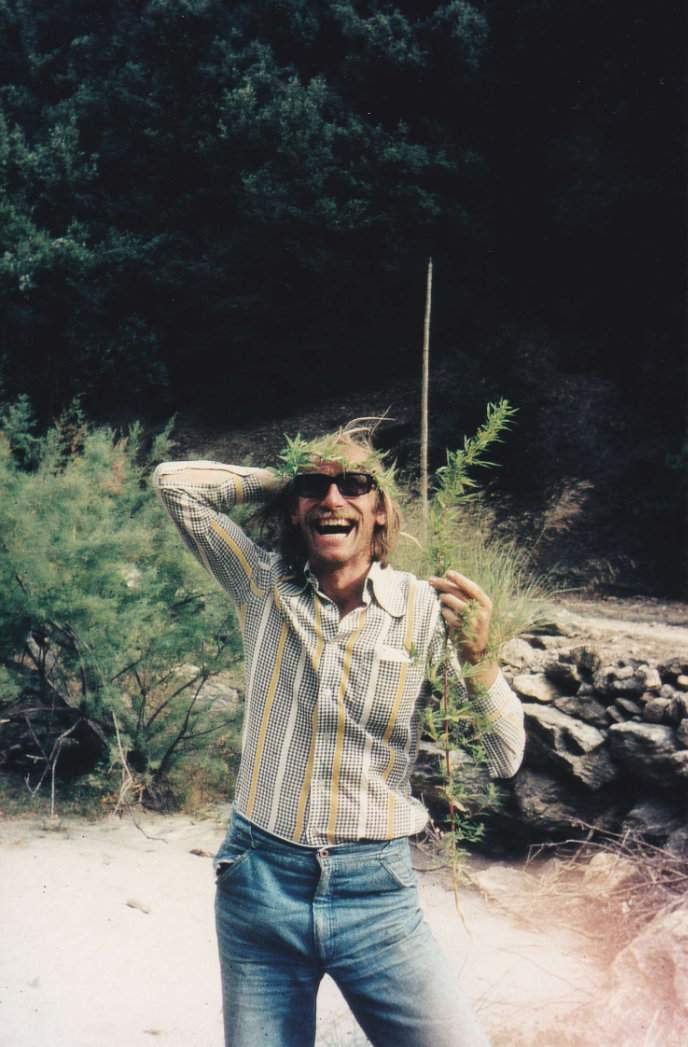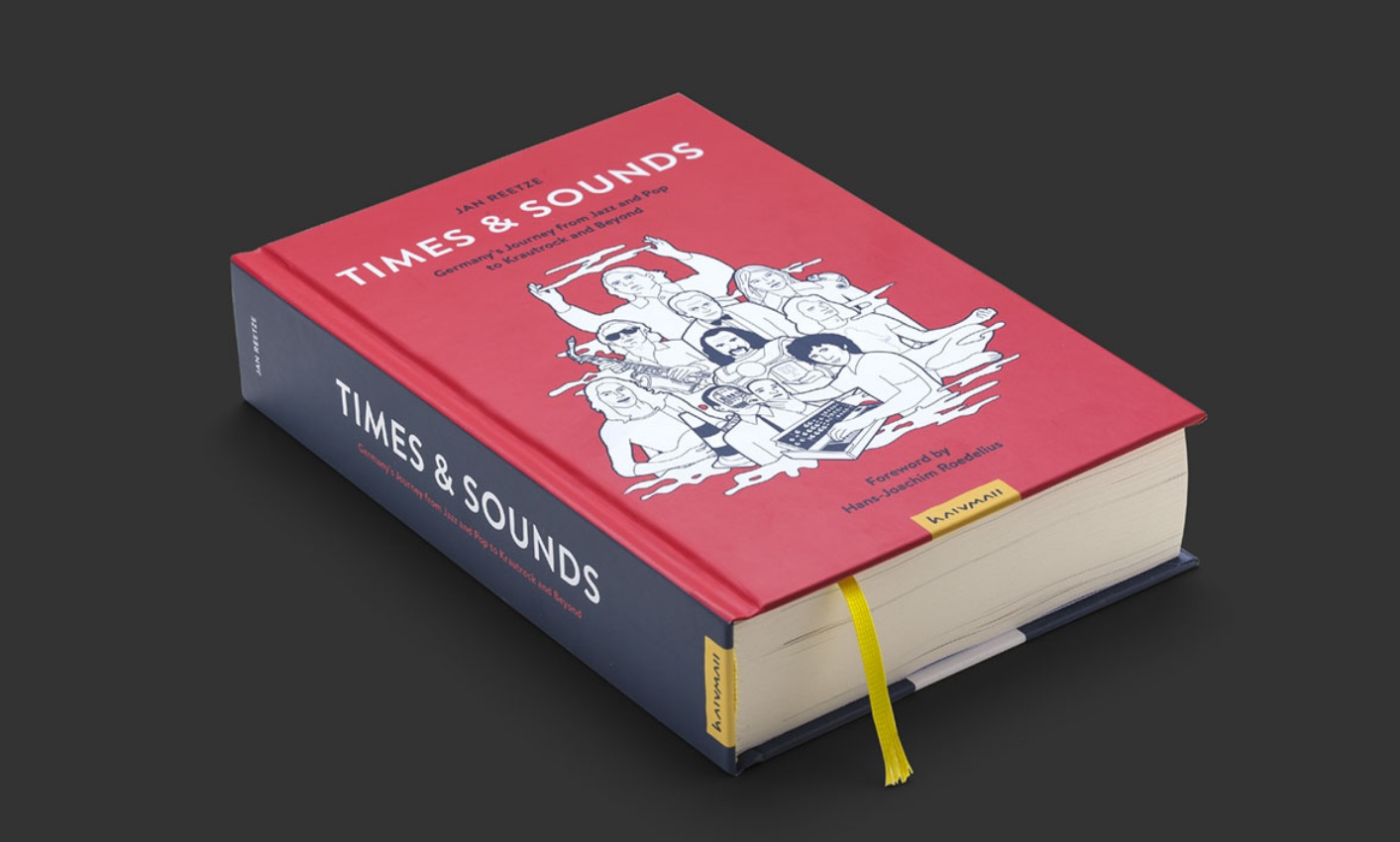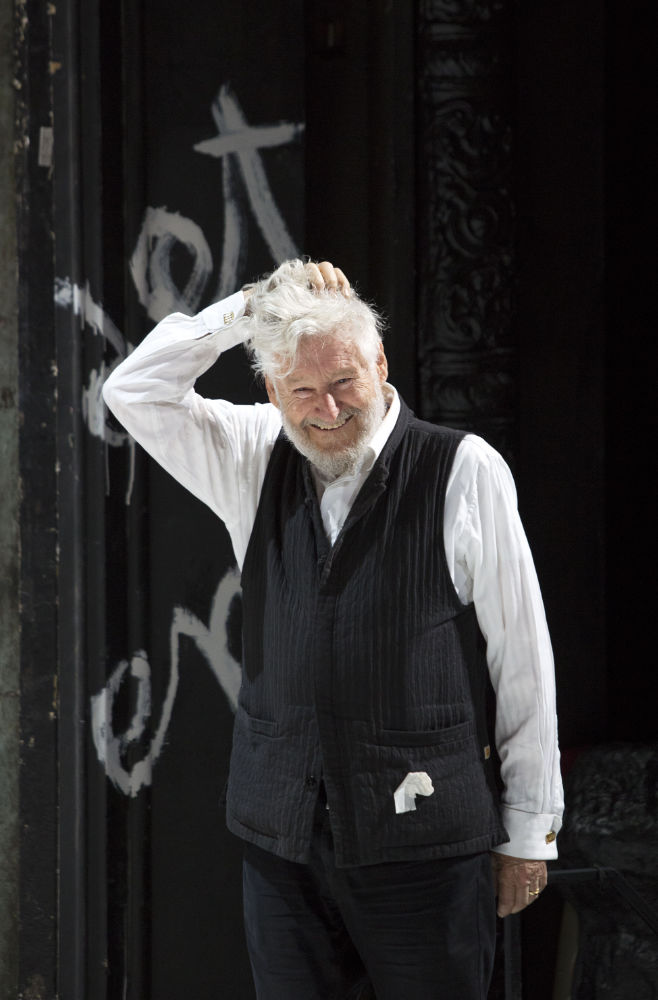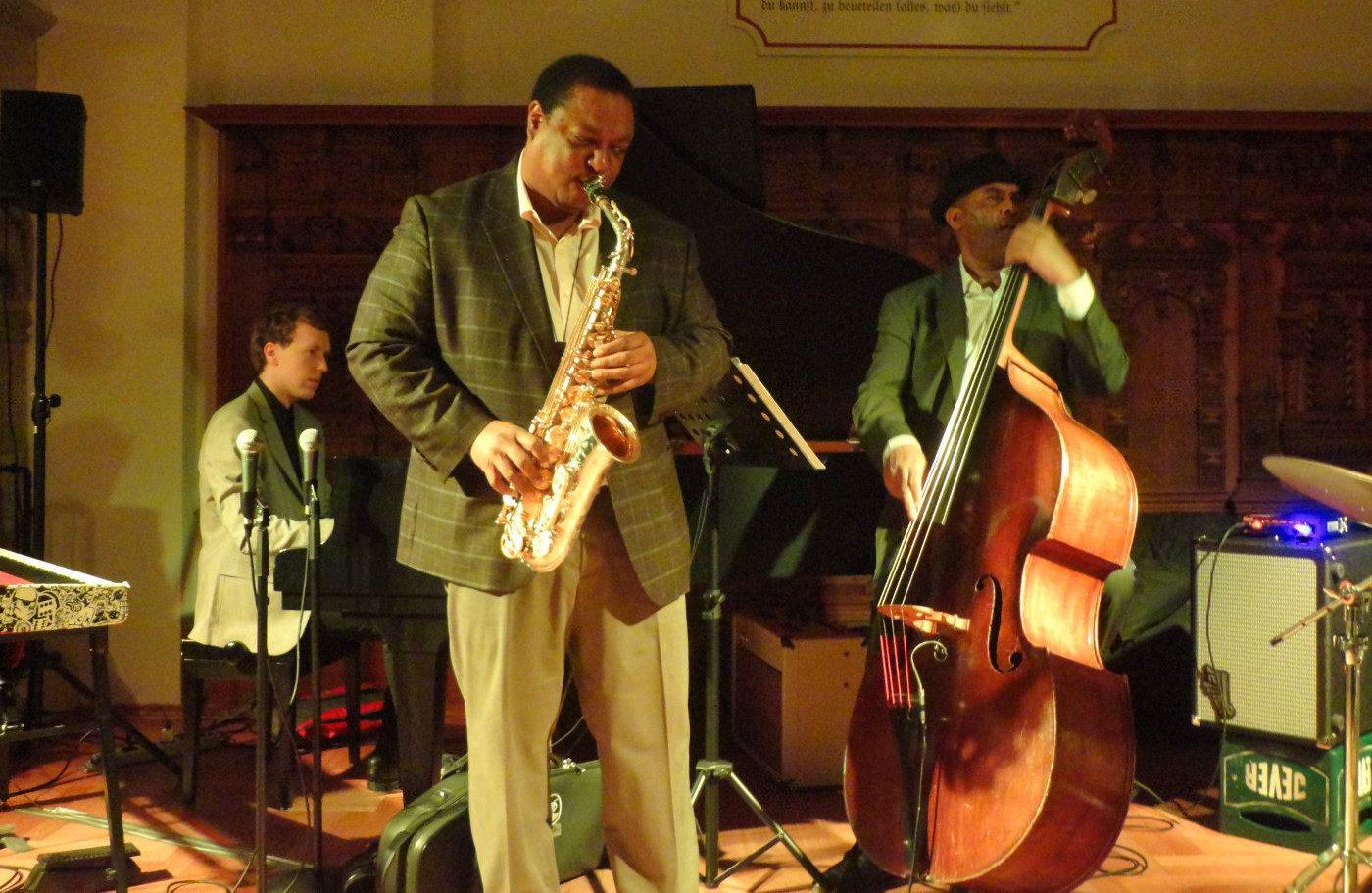
“Each person’s name is a different story”
… it is precisely its unexpectedness that makes music pleasing. The ‘law of good forms’, dear to Gestaltists, applies to the spatial arts but not to music. For music’s worst enemy is boredom, repetition, the foreseeable. But the converse is true and music, like an unfettered life, is the opposite of boredom. An art of time, it does not surrender or submit itself to it: music entrusts itself to time, puts its faith in it, knowing that whatever time might bring, it will bring something and will give it its existence – for a time. In that way, music is life and the open, unfettered, free life is music.— OLIVIER REVAULT D’ALLONES, MUSICAL VARIATIONS ON JEWISH THOUGHT
Eckhard Fürlus: Thank you so much for the wonderful concert and the great time you shared with us. You have played in so many jazz festivals all over the world. Does it make any difference for you as a musician or for the band as an ensemble to play in any big city or to play in a small town like Jever?
Vincent Herring: I have to tell you that today playing here in this town was special for me, not just for me, but for all of us. We were treated really, really well and the people were very, very kind and appreciated. So this is what happens, you know. I played Carnegie Hall on Saturday. On Monday I was playing up over in Brooklyn. We play all kinds – the best and the worst – all kind of gigs. What matters is the people and their response. They feel, what you are doing.
Eckhard Fürlus: My wife and I, we normally live in Berlin and we think a lot about these things. Our point of view is: When you have just seen a great concert – either classical or jazz – and then you have to find your way home through the city. I think that brings you much too fast down to earth.
Vincent Herring: You know, we do this so much, that it’s a constant pattern with us. So, you know, I’m sure as he has made the same experience. A big concert in front of how many thousands of people, and then, five minutes later, … So, for people who don’t do it all the time, you can see it like: How can you have such exhilaration, and then come down. But for us, we do it all the time. And we still appreciate it. But it’s not so unusual that we can just relax and come back.
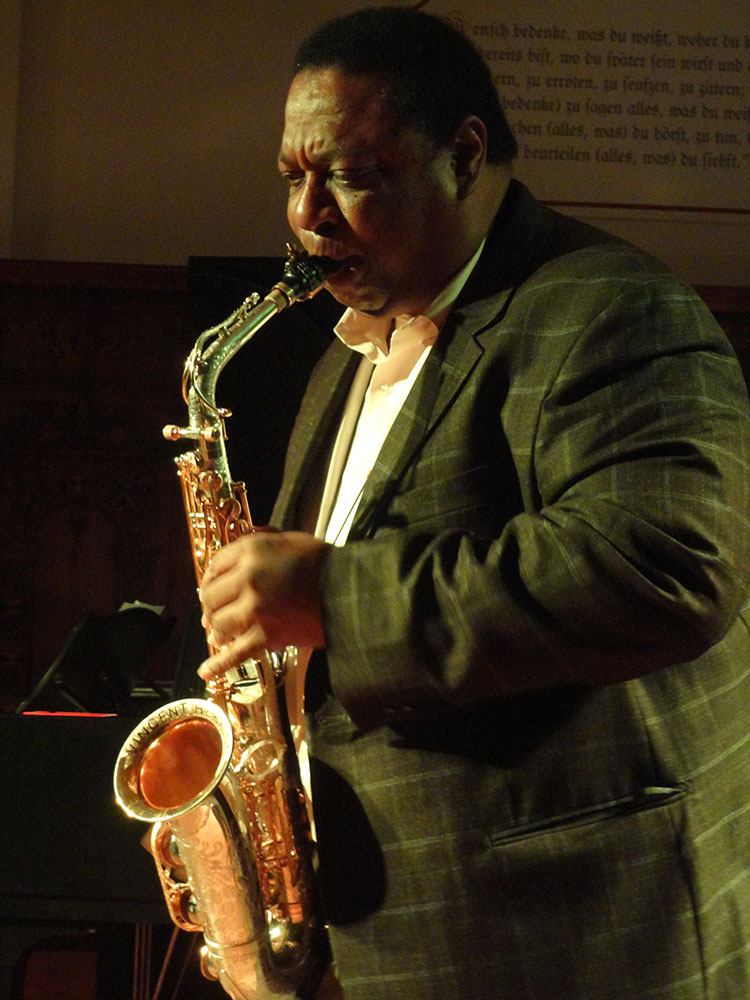
Vincent Herring © Ines Kähbein
Eckhard Fürlus: You played already lead alto sax at United States Military Academy band, Jazz Knights, and at West Point Academy. What kind of experiences did you make there? In the internet you cannot get so much information about that.
Vincent Herring: Right. That is a long time ago. Pre-internet. First of all, it was a professional setting. I was very young, and it was a thing you expected. You expected to be at some place at a certain time and perform this music and read all of this music and do these things. So it was a great experience that helped to make me the professional I am today. At that time, I may have not appreciated it. I do appreciate that it was … and still disappointed me and it was important.
Eckhard Fürlus: One of my favourite bands of the late Sixties and early Seventies were Phil Woods and His European Rhythm Machine. I know a little bit of the Alto Summit. But years before that, you had – far as I know in 1983 – private lessons with Phil Woods. How did you come to collaborate with him?
Vincent Herring: Well, I was a big fan of Phil Woods, and I met him in California when I was a kid in highschool. And I got his telephone number and when I moved to New York, meaning West Point, I got in contact with him, and I drove to his house two hours away, and I had lessions. It was a great experience.
Eckhard Fürlus: There are so many musicians you played with. I don’t want to name them all, but just a few: Nat Adderley, Art Blakey and the Jazz Messengers, Carla Bley, Larry Coryell, Jack DeJohnette, Dizzy Gillespie, Freddy Hubbard, Wynton Marsalis, David Murray, Horace Silver, Arthur Taylor, Cedar Walton, Nancy Wilson and many, many others. That is really mind blowing. How did you come together and collaborate?
Vincent Herring: Well, I quote Dizzy Gillespie. When I was with Nat Adderley, Dizzy was always calling me for two gigs, and I couldn’t always make it. I did two gigs with him, but I wasn’t going to leave Nat’s band at that time. So that … it was only two gigs. Each person’s name is a different story, but usually they called me, maybe they heard me and met me and someone says a thing and that was experienced. One experience that was funny: I worked originally with Cedar Walton, and after one week he told me, I wasn’t ready, and he said, “But I call you again some day.” I was like: “Really?” You know, he hired me for a week at the Vanguard, and afterwards he said: “You’re not ready.” But two or three years before he called me again, you know. But then, there was … I could play a gig, I was more ready for that gig, because for that gig you have to really be into a lot of things.
Eckhard Fürlus: One of my favourite musicians is Carla Bley. I always liked Escalator Over The Hill. How did you meet Carla Bley.
Vincent Herring: Carla Bley, let’s see. You know, we did a recording, and I think we came out. I remember doing that recording. I did the Chicago Jazz Festival with her, a couple of jazz festivals with her …
Eckhard Fürlus: The name of your current band is Soul Chemistry. Does it mean that, with new material, you are now going into a certain direction?
Vincent Herring: Well, not a different project, that I have. You know I have this story of jazz, which is a larger project. Do you know about that project? So, there’s a project that I have. Another project with some New York players, that is different. This is a collaboration really with me and Joris, and we’ve been collaborating for years, and so …
Eckhard Fürlus: Twenty years, I think …
Vincent Herring: Yeah. We call it Soul Chemistry. It’s playing our music and stuff we want to do.
Eckhard Fürlus: How important is the impact of the record companies, and in which way do they influence the collaboration of musicians – for example if you are signed at different record labels? And is this of any importance for life concerts?
Vincent Herring: Yes. Yeah, yeah, in all occasions, it is. It matters greatly. Sometimes they will too much power and influence. Sometimes it could be a possible thing, but other times it’s a bit much. I’m fortunate that our record company, with Smoke Records, they are pretty open to whatever you want to do and collaborations you’re interested in doing. So it works to my favourite.
Eckhard Fürlus: Mr. Herring, thank you so much. And thank you for giving us a few words about the political situation in the United States.
Vincent Herring: Terrible. Terrible.
Eckhard Fürlus
Dr. Eckhard Fürlus, geboren in Jever, Friesland. Studium der Philosophie und der Theologie an der Freien Universität, der Technischen Universität und der Kirchlichen Hochschule in Berlin. Mitarbeiter der Staatlichen Museen Preußischer Kulturbesitz SMPK, des Deutschen Akademischen Austauschdienstes DAAD, der Akademie der Künste und des Landesmuseums Berlinische Galerie. Von 1993 bis 2001 wissenschaftlicher Mitarbeiter der Berlinischen Galerie. 2006 künstlerischer/wissenschaftlicher Mitarbeiter an der Kunsthochschule für Medien zur Assistenz von Prof. Siegfried Zielinski im Bereich Archäologie / Variantologie der Medien; seit 2007 Dozent an der Universität der Künste Berlin (UdK), Institut für zeitbasierte Medien.
You may also like
„ich fühle mich in meiner mir selbst auferlegten marktunterlegenheit sehr wohl.“
ich habe viele arabische länder bereist & da ist mir aufgefallen, dass, wenn ich meinen namen hartm
Times & Sounds
„Times & Sounds“ ist ein Paradebeispiel für spannenden Journalismus, für kritische Subjektivit
Bildertoleranz und Raum-Flächen-Linien
Das Haus von Achim Freyer ist ein Kunstwerk. Cragg und Chagall, Wilson und Giacometti, Grosz, Schn

